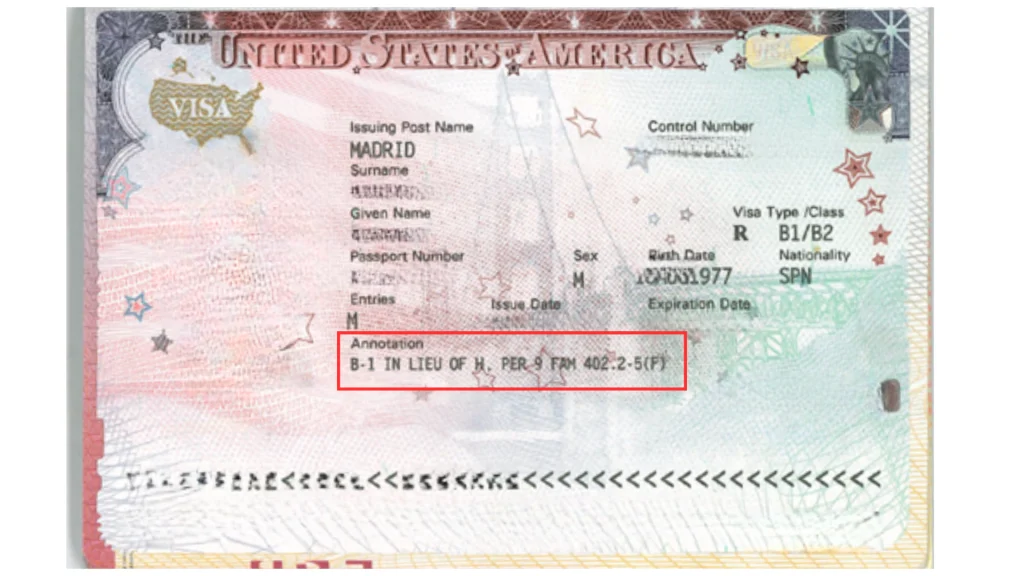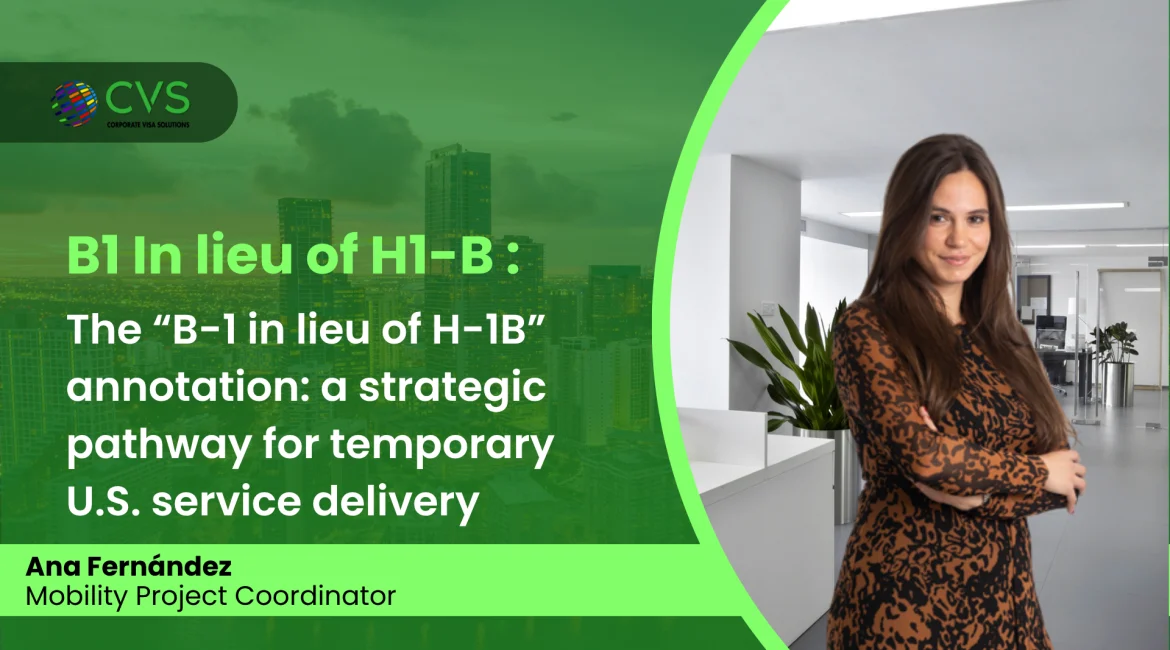The “B-1 in lieu of H-1B” annotation: a strategic pathway for temporary U.S. service delivery
When navigating short-term business assignments in the United States, the B1 visa often emerges as a flexible option.
For UK companies delivering specialised services abroad, the “B-1 in lieu of H-1B” annotation provides a strategic pathway to deploy talent without the delays or costs of a traditional H-1B petition.
What does “B-1 in lieu of H-1B” mean?
The annotation “B-1 in lieu of H-1B” refers to a special designation under the standard B1 business visitor visa, allowing foreign professionals to engage in certain work activities in the United States that would typically require an H-1B work visa. This route offers a temporary and limited exception, granted only under strict conditions.
This visa type is intended for short-term service provision—such as delivering consulting, technical, or training support—under a cross-border business framework. It’s commonly used when a company needs to send a specialist for a specific, time-bound task without triggering full U.S. work authorisation procedures.
For example, as shown in the scanned U.S. visa issued in Madrid, the holder was authorised to enter under B-1 status with the “in lieu of H-1B” annotation—formally recognising the temporary, professional nature of the visit within a cross-border services framework.

If you’re exploring broader U.S. visa options for your team, our comprehensive guide to U.S. visas provides an overview of available categories for international assignments.
Key requirements
To qualify for a B1 visa with this annotation, the applicant must meet several essential criteria:
- The applicant must remain employed and paid by a foreign entity throughout their stay in the U.S.
- The foreign company must demonstrate a legitimate business interest in the U.S. project or collaboration.
- The work must be temporary in nature and must not constitute direct entry into the U.S. labour market.
- The individual must possess the equivalent qualifications typically required for an H-1B petition, often a bachelor’s degree or higher in a specialised field (i.e. a Subject Matter Expert).
You’ll find further details, examples, and compliance considerations in our dedicated article on the B-1 in lieu of H-1B visa.
Strategic benefits for businesses
This visa category offers multiple advantages for companies operating across borders:
- Faster processing: It avoids the lengthy H-1B petition process and associated lottery-based cap limitations.
- Flexibility: Particularly suited for short-term technical or consulting projects.
- Lower cost: Considerably reduces legal and immigration expenditure.
This annotation is especially valuable for consulting firms, engineering companies, technology providers or auditors needing to send highly skilled personnel to the U.S. for a limited period, while maintaining their home employment relationship.
Companies operating in industrial sectors may also benefit from related short-term solutions, such as the B-1 visa for industrial workers.
Risks and limitations to consider
Despite its flexibility, the B-1 in lieu of H-1B visa comes with strict conditions:
- The foreign professional cannot receive direct remuneration from a U.S. source.
- There must be no intent or pathway to long-term employment within the U.S. under this status.
- Misuse may lead to visa revocation, inadmissibility findings or corporate liability.
Final thoughts
The B1 in lieu of H-1B visa is particularly relevant for clients engaged in transnational service contracts—especially within IT, consulting, engineering, architectural and energy sectors.
A precise understanding of this category allows for greater agility in cross-border talent deployment without violating U.S. immigration rules.
It also offers a strategic mobility option while evaluating a full H-1B process or establishing long-term business presence in the U.S. market.
Looking to explore more strategic US visa options? Take a look at these related insights:
L1B visa mistakes UK companies should avoid and how to fix them
Why the E-2 visa for UK citizens is a strategic tool for business expansion in the US
What makes the L1B Visa ideal for UK technicians? – Corporate Visa Solutions





